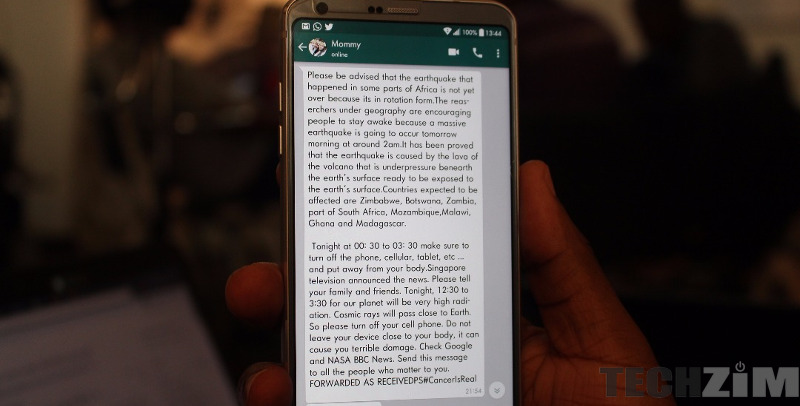Zimbabweans have taken to social media like moths to flame. Whether it is the enhanced communication social media provides (video, audio, emoji, text) or the lower cost compared to other forms of communication, or both, people like what these platforms offer.
As with all platforms where millions congregate, there is opportunity to scam some, cause panic, inform, misinform propagandise or get up to whatever mischief you desire. The world over, these social media platforms have become breeding grounds for fake news, viral nonsense and the downright silly. They have also been instrumental in political revolutions, the Arab Spring springing to mind, so it’s not all goofiness.
It is that last point which scares governments across the world. For the Arab Spring it was Facebook which was instrumental but the biggest threat to censorship-heavy governments is now, as coincidence would have it, Facebook-owned WhatsApp. With its end to end encryption and low cost, over a billion people in the world now have the means to communicate securely.
In Zimbabwe WhatsApp is so popular phone retailers market their phones as ‘WhatsApp phones.’ Everyone and their grandmother is on WhatsApp. For many in this country, the word ‘app’ is synonymous with WhatsApp, if you walk the streets and eavesdrop on peoples’s conversations you will most definitely hear someone say, ‘I’ll app you.’ You will also notice that no one will seek clarification as to which app is meant. They know.
The Zimbabwean government was not too interested in WhatsApp as the docile and peace loving Zimbaweans used the platform mostly for crude jokes and cute dancing babies’ videos. That all changed last month when a few messages predicting a return to 2008 level of basic goods shortages went viral on the platform which led to panic buying which in turn led to temporary shortages and price hikes.
That episode shocked the government. Mostly because the messages were completely fake, made up, hoaxes. Nobody bothered to check their authenticity or accuracy and people gobbled up the reports as true. Of course this was so because of the general decline being witnessed by all in the economy. Also the little thing that we experienced it before and as they say, once bitten twice shy.
This problem of fake news is hot in the world right now. In the US elections held last year the losing party was vocal in expressing their anger at Facebook, claiming that fake news on the popular site had decided the election. Earlier this month Spain had to deal with fake reports on WhatsApp on police brutality which escalated violence during the Catalan Independence vote.
In Brazil where WhatsApp is extremely popular, 80-92% of those with internet access are on the platform, fake news has become a problem with dire consequences. Earlier this year messages spread claiming there was a young woman and an older man kidnapping and selling children.
Someone then saw a young lady with an older man in a city centre, snapped a picture of them with their car’s licence plate visible and shared it on WhatsApp and Facebook. The public agreed among themselves that those two were the guilty duo, sought them out and beat them up. Were it not for the police they would have been killed.
There are many more examples of WhatsApp being used to spread hoaxes which are often believed. The German election being another example. Here in Sub-Saharan Africa the most popular hoaxes are usually centred on extreme weather. Turns out it’s not just a Zimbabwean thing. We have all seen those ‘there will be a heat wave this week’ texts at one time or another. In some countries those seemingly victimless texts have led to mass evacuations as people fled their homes fearing hurricanes.
So is there a problem of fake news on WhatsApp?
Yes! Without a doubt. The evidence is damning. The world over, fake news on the platform has led to serious incidents. The Zimbabwean government has come to the same conclusion and is working on a law to address the issue, the Computer Crimes and Cybercrimes Bill. A new ministry has also been created, the Ministry of Cyber Security, Threat Detection and Mitigation with a focus on social media abuse.
As you read all this you might actually be mad that people actually fall for those hoaxes, I mean you can smell them from a mile away. Apparently whatever you regard as common knowledge is not that common. If any of us was contributing to those jokes-not-told-as-jokes please stop. Let us not contribute to the problem.

One response
Get this right, WhatsApp is NOT social media!
WhatsApp is an instant messaging service. The most basic difference has to do with who you can communicate with and what you can do.
Your WhatsApp connections are limited by whose number you know (1st degree) or whose number you know and they have accepted…Social media is wider and allows discovery and linking beyond your 1st degree connections.